AFOLABI
Benin Republic electoral officials visit INEC ‘to learn from Nigeria’
A 12-member delegation from Benin Republic’s Autonomous National Electoral Commission (CENA) has visited the Independent National Electoral Commission (INEC) on a study tour.
The delegation, led by Sacca Lafia, CENA president, included national commissioners, directors, and senior staff.
They were received on Monday by Mahmood Yakubu, INEC chairman, alongside other commission members at INEC headquarters in Abuja.
The visit, according to Lafia, was aimed at learning from Nigeria’s electoral processes and best practices as Benin Republic prepares for its upcoming 2026 elections.
Speaking at the event, Yakubu highlighted the significance of the visit and the unique challenges CENA faces ahead of the polls.
“Early last month, we received a letter from CENA indicating its interest to undertake a study visit to INEC Nigeria as they prepare for what they described as their most complex election in 2026,” he said.
Yakubu explained that CENA will, for the first time, conduct three elections in three months. Legislative and local elections are scheduled for January 2026, with the presidential election to follow in April 2026.
He said INEC had prepared a detailed programme to address the delegation’s interests.
“In particular, CENA is interested in the legal framework for elections in Nigeria, the design and printing of election materials and forms, the recruitment and training of poll officials, election budgeting and mode of payment to different service providers, security during elections, the use of technology, the accreditation of local and international observers, engagement with electoral stakeholders and other aspects of Nigeria’s electoral experience,” Yakubu said.
He said INEC officials from various departments will brief the delegation during their visit, covering all aspects of the electoral process.
Yakubu assured the team of full access to resources and documentation to support their preparation for the 2026 elections.
Below are pictures from the visit.
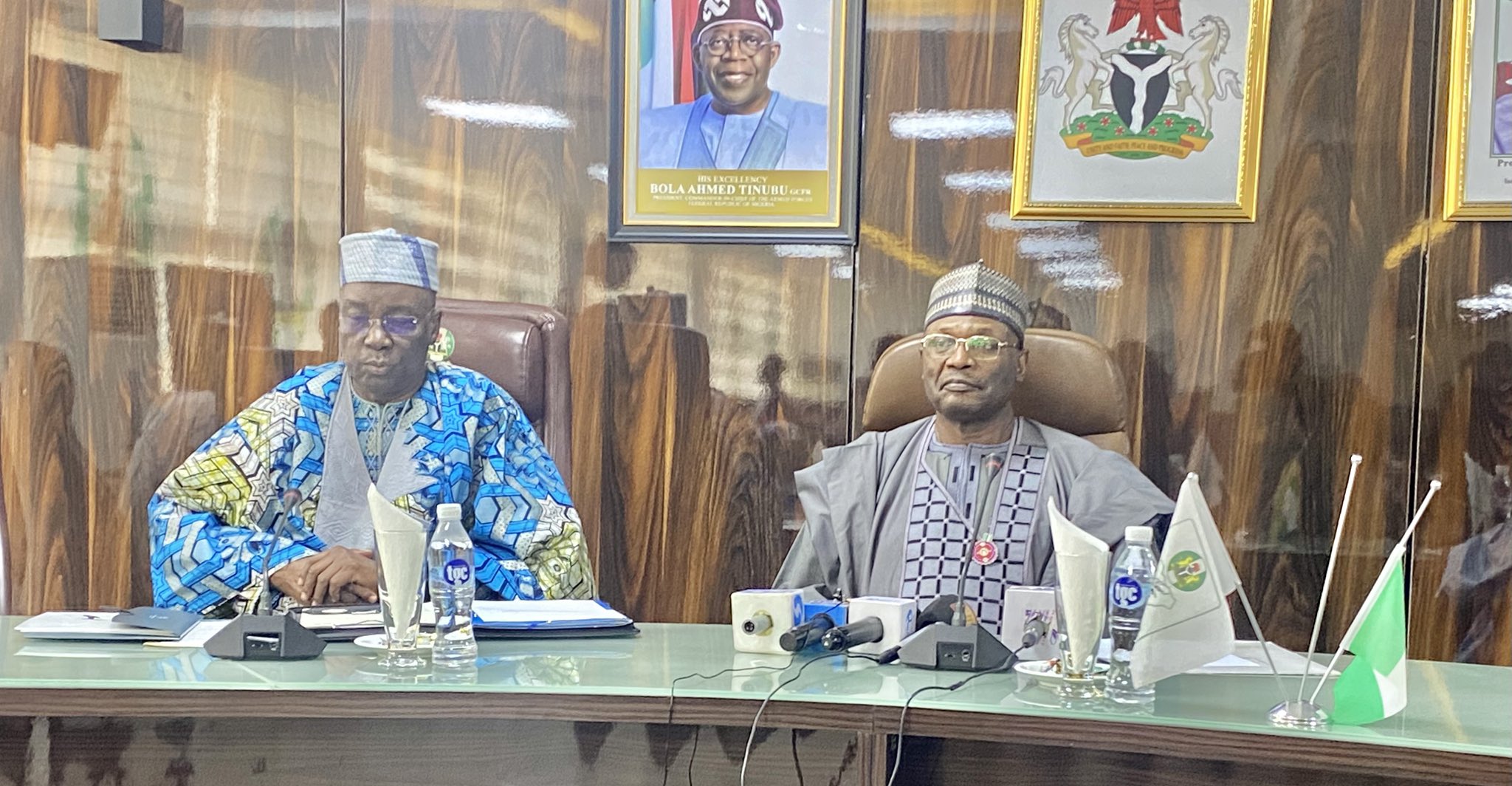
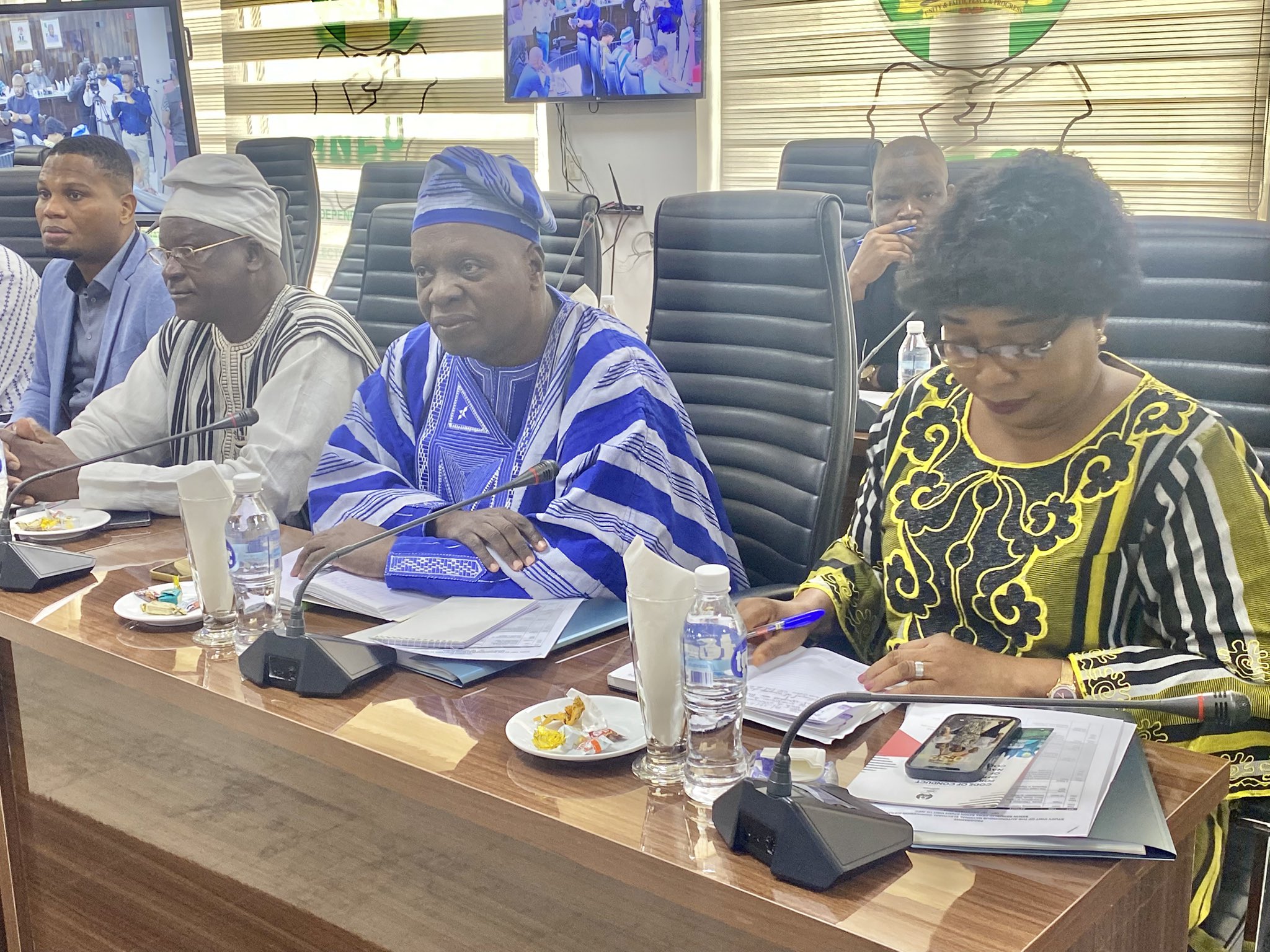
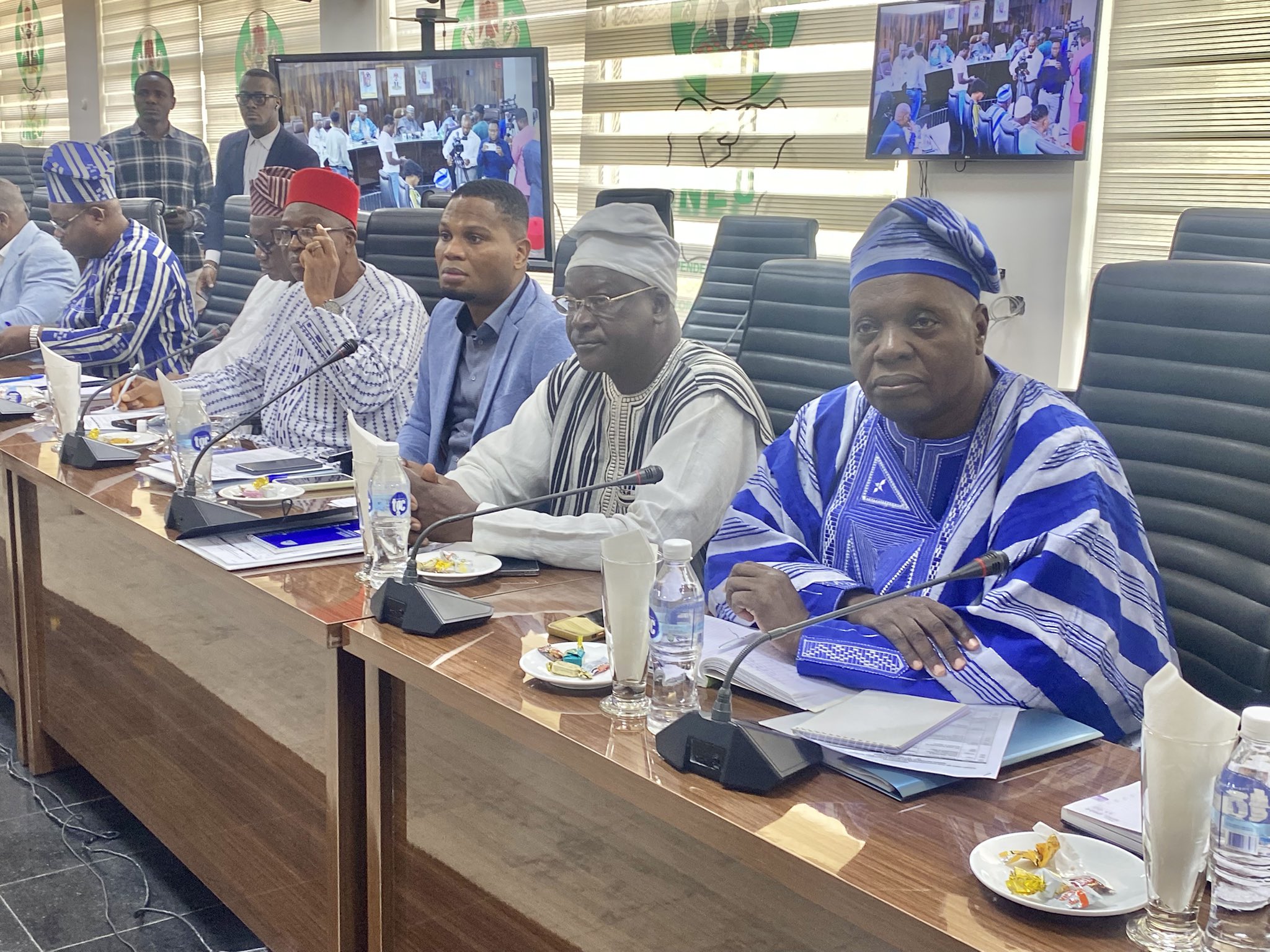
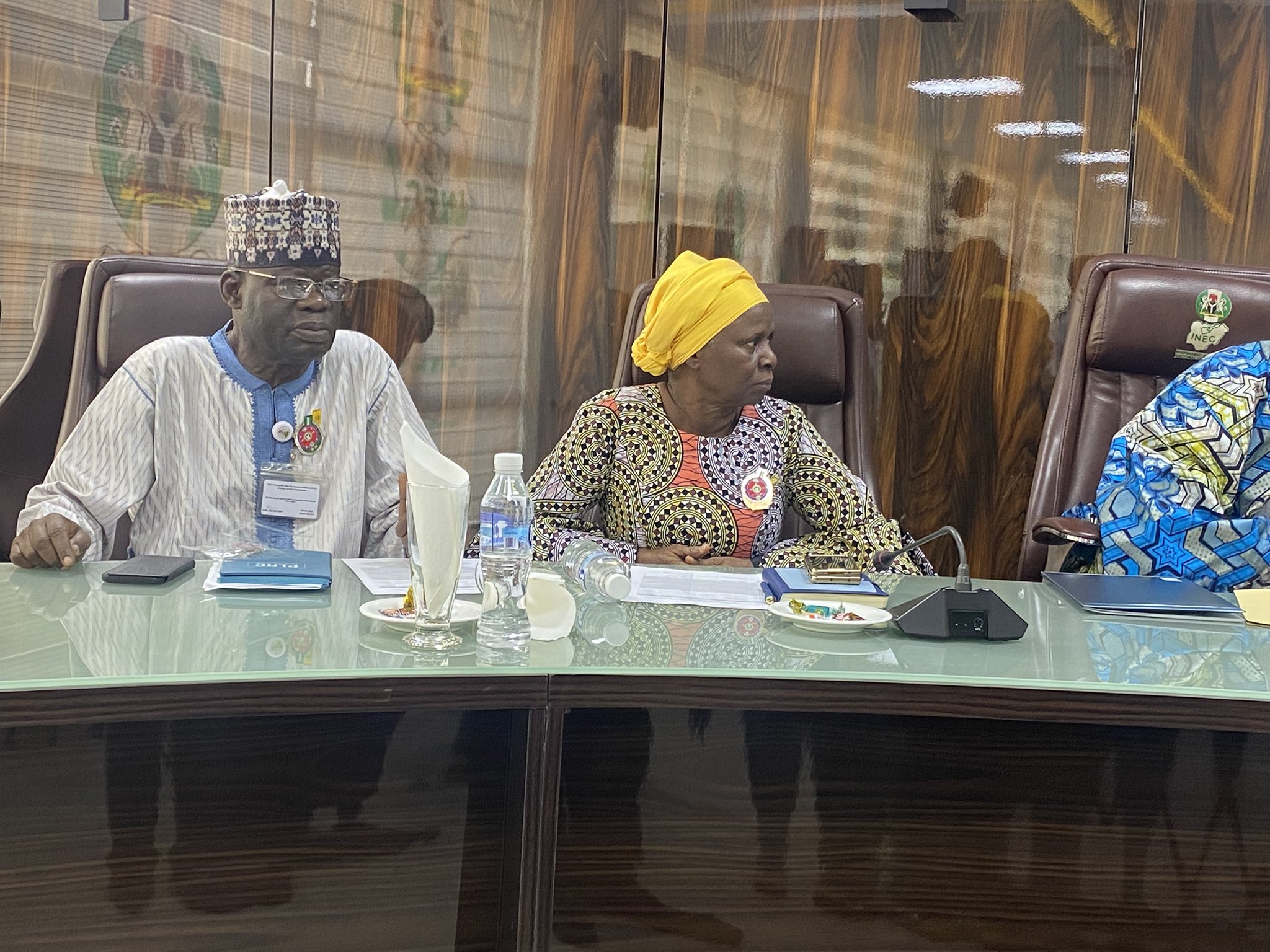
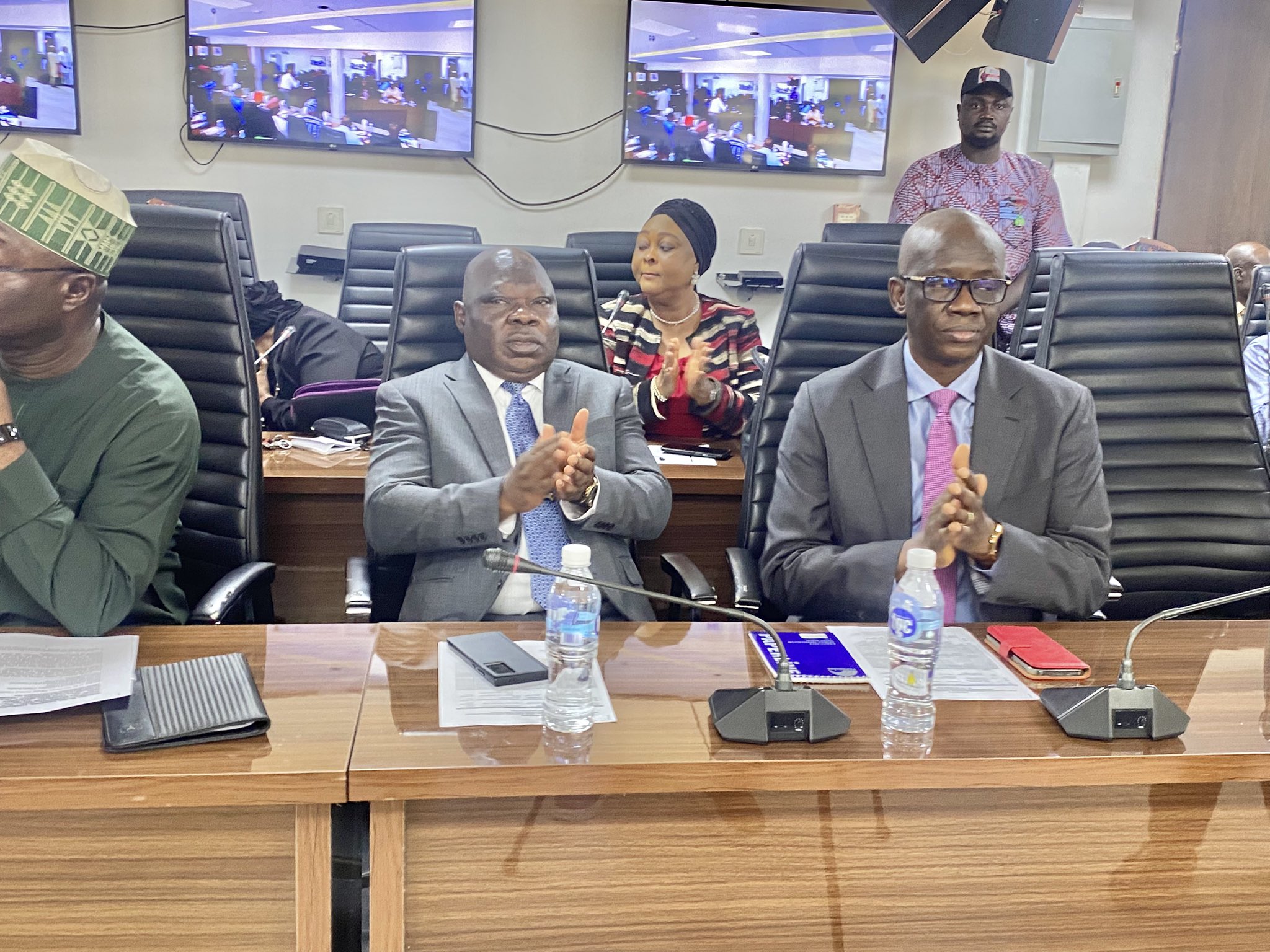
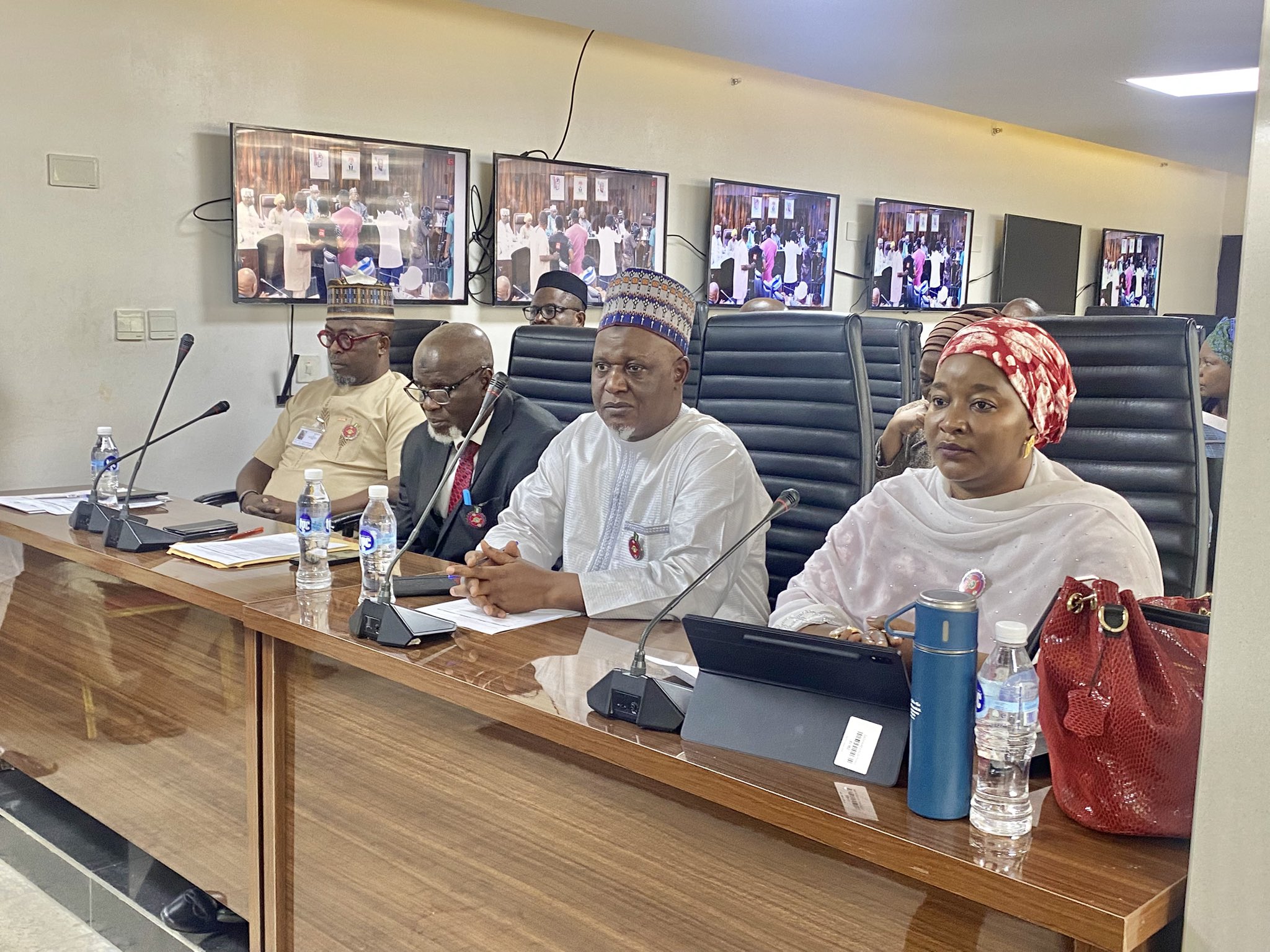
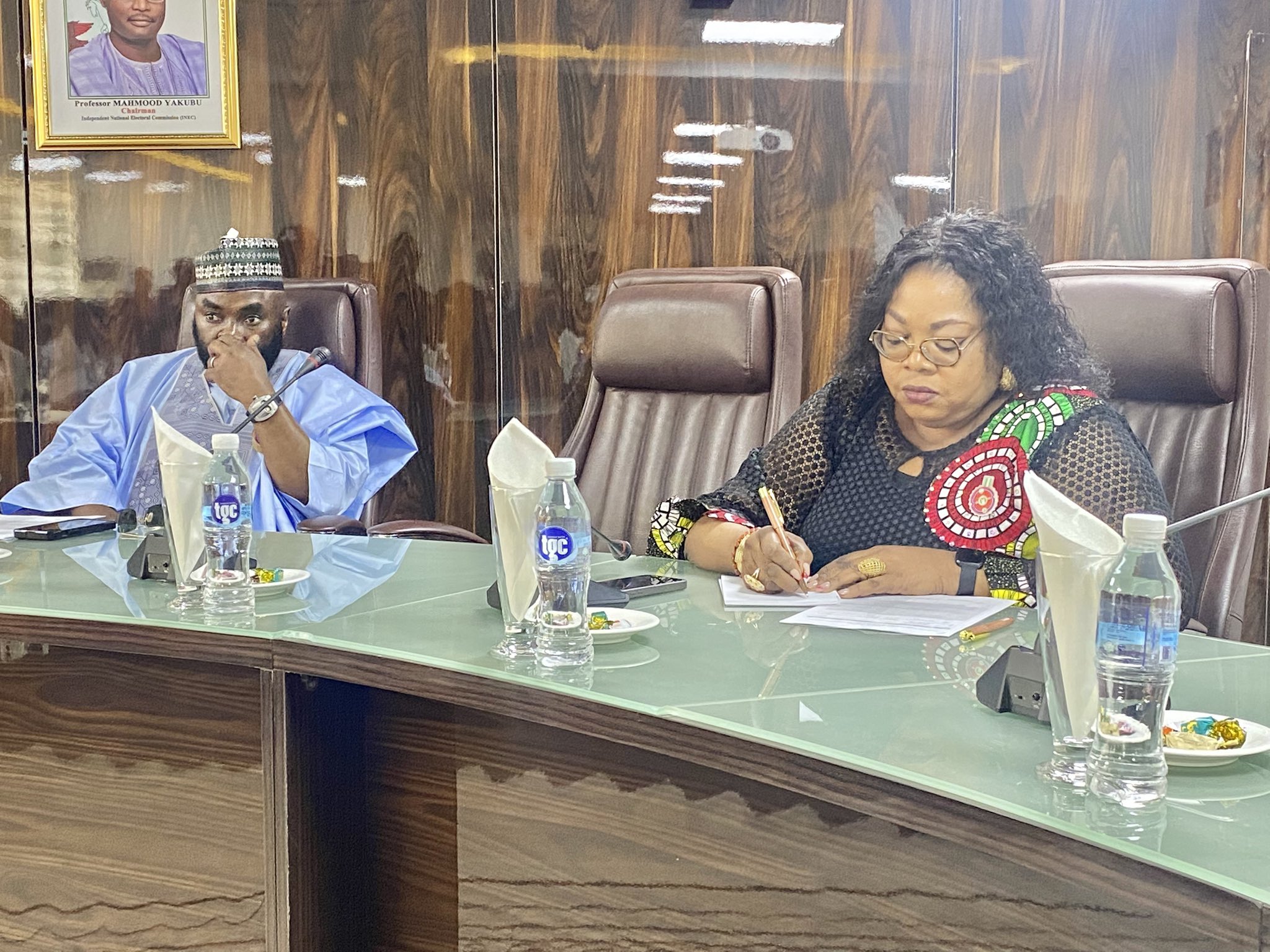
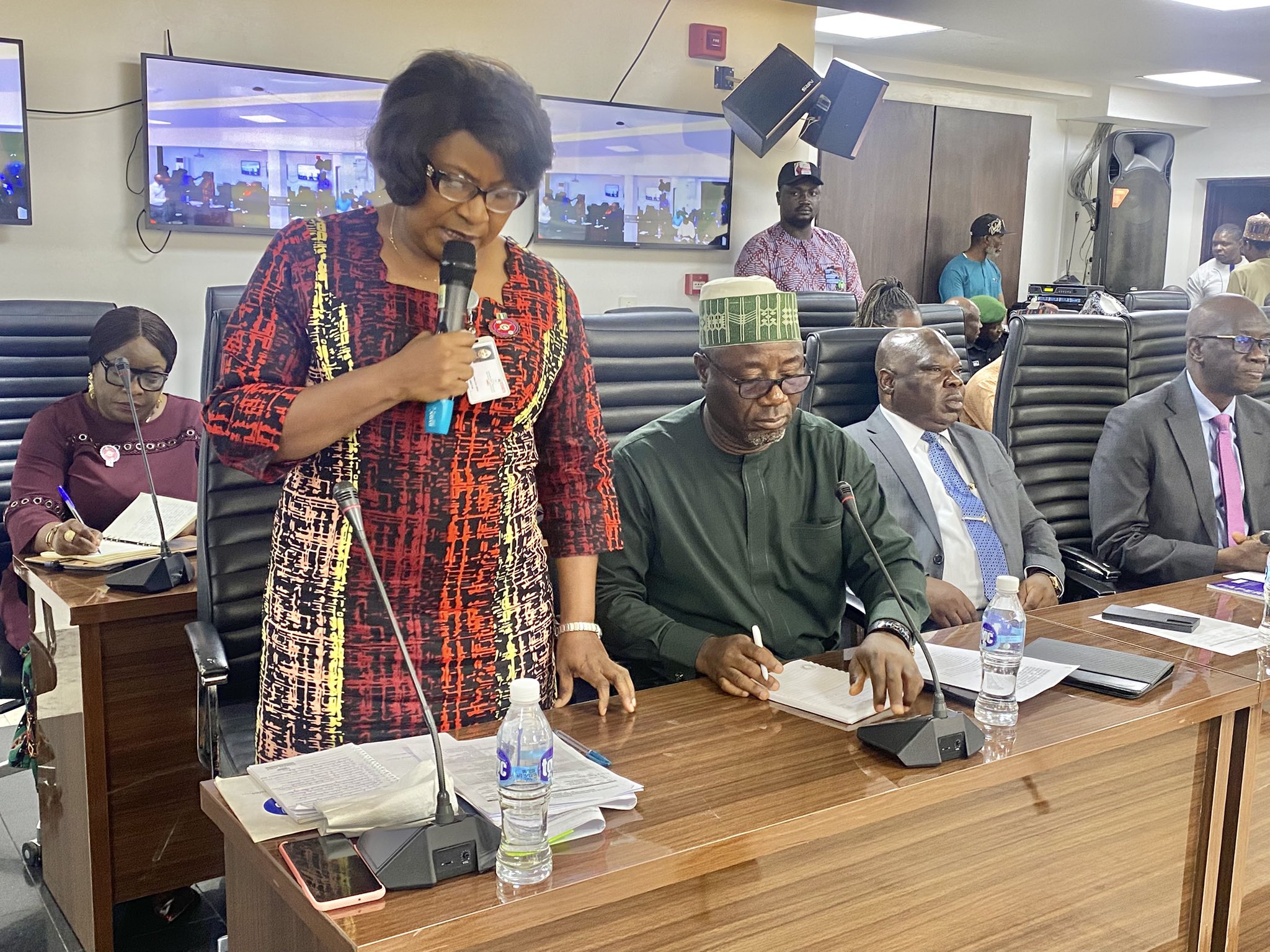
Presidency Reacts to Kemi Badenoch’s Story About Nigeria Police
More Hardship As Nigeria’s Inflation Rate Climbs to 34.60% In November
Nigeria’s inflation rate has risen from 33.88 percent in October to 34.60 percent in November.
The National Bureau of Statistics (NBS) disclosed this in the November Consumer Price Index and Inflation (CPI) report released on Monday.
According to the report, the increase in November was by 0.72 percent. The report showed an increase of 6.40 percent when compared with the report of November 2023.
“In November 2024, the Headline inflation rate was 34.60% relative to the October 2024 headline inflation rate of 33.88%. Looking at the movement, the November 2024 Headline inflation rate showed an increase of 0.72% points compared to the October 2024 Headline inflation rate.
“On a year-on-year basis, the Headline inflation rate was 6.40% points higher than the rate recorded in November 2023 (28.20%). This shows that the Headline inflation rate (year-on-year basis) increased in November 2024 compared to the same month in the preceding year (i.e., November 2023),” it read.
However, the report showed that the increase in the average price in November was slower than in October 2024.
“Furthermore, on a month-on-month basis, the Headline inflation rate in November 2024 was 2.638%, which was 0.002% points lower than the rate recorded in October 2024 (2.640%).
“This means that in November 2024, the rate of increase in the average price level is slightly lower than the rate of increase in the average price level in October 2024,” it stated.
The report also disclosed that Nigeria’s food inflation was 39.93%.
Supreme Court Slams ₦5 Million On Ex-presidential Candidate For Challenging Tinubu’s Election
The Supreme Court in Abuja levied a fine of ₦5 million against Ambrose Albert Owuru, a former presidential candidate, for subjecting President Bola Ahmed Tinubu to harassment through a baseless and vexatious lawsuit.
Naija News reports that Owuru, who ran for the presidency in 2019 under the Hope Democratic Party (HDP) against former President Muhammadu Buhari, was mandated to remit the ₦5 million to Tinubu.
Justice Uwani Musa Aba-Aji issued this directive while dismissing Owuru’s latest suit, which sought the removal of Tinubu from Nigeria’s presidency.
In addition to the monetary penalty, the Supreme Court instructed its Registry to reject any future frivolous originating summons submitted by Owuru.
During the proceedings, Owuru, who asserted that he was a lawyer admitted to the Nigerian Bar in 1984, attempted to represent himself while donning his wig and gown.
He was subsequently ordered to leave the court room and to remove his wig and gown before being permitted to present his case.
After complying with the court’s orders, Owuru was questioned about his repeated appearances before the court, given that his previous suits had been dismissed on three occasions.
Despite his efforts to persuade the Supreme Court to hear his arguments, his explanations were deemed unconvincing.
Justice Aba-Aji remarked that Owuru’s behaviour was inappropriate for someone claiming to have over 40 years of legal experience. Ultimately, the court dismissed his suit and mandated him to pay ₦5 million to Tinubu.
More details shortly…
How Cabals Hijacked Buhari’s Presidency For Eight Years, Amassed Wealth — Ex-Minister Dalung
Former Minister of Youth and Sports, Solomon Dalung, has accused a powerful cabal of hijacking power shortly after President Muhammadu Buhari’s electoral victory in 2015.
Speaking on the Mic On Podcast on Sunday, Dalung explained that a cabal is “a group of ambitious individuals, often appointed by the president, who end up manipulating the presidency to serve their personal interests rather than the public good.”
According to him, shortly after Buhari’s victory, an influential group emerged unexpectedly and sidelined those who had actively campaigned for the president.
Dalung recalled how his access to Buhari was suddenly restricted, an event he described as the moment the cabal took control.
He recounted, “On the day Buhari was declared winner, I went to see him in the evening. To my surprise, I was blocked from entering his house — a house where, just a day earlier, I had stayed until 2 a.m. I had to make several calls before I was finally allowed access. From that day, it became clear that the cabal had taken over.”
Dalung criticized the role of Buhari’s supporters, noting that they went out celebrating, leaving the president exposed to those who “understood power” and had the capacity to take over the administration.
“These people, who understood power, took over and ran the government to their interest until eight years were gone,” he said.
When asked whether Buhari’s administration was influenced by a Congress for Progressive Change (CPC) cabal, Dalung dismissed the idea.
He argued that key CPC figures like Tanko Al-Makura were not part of the group controlling power.
“The CPC did not succeed in having a cabal. Instead, the government was hijacked by people who were not politicians but ‘like bandits who laid an ambush’ immediately after Buhari’s victory,” Dalung stated.
He claimed that the individuals who seized power in Buhari’s administration amassed substantial wealth and influence over the years, becoming some of the most powerful figures in Nigerian politics.
“Of course, they are very, very wealthy, and Nigerians should expect them. They are very powerful,” he added.
On the possibility of a similar situation in President Bola Tinubu‘s administration, Dalung suggested that the dynamics had evolved within the All Progressives Congress (APC).
He described the ruling party as a “sophisticated political machine” and likened it to a “zoo,” reflecting its complexity.
“It is the same APC we formed, but it is now more sophisticated. The party has become a complex political architecture, more like a zoo,” he remarked.
Despite making these bold claims, Dalung said he had no fear of retaliation. He revealed that he had survived over 10 assassination attempts, including one where his car was riddled with bullets by gunmen wielding AK-47 rifles.
“I’ve been into the struggle for 40 years. I’ve survived more than 10 assassination attempts. There was a time five people carrying AK-47s sprayed my car, and I am still alive,” he said.
He also shared accounts of previous attempts on his life, including efforts to poison his food and ambushes from armed attackers.
“I am not afraid of death. My mother confirmed to me that I will not leave this planet until the day ordained by God,” Dalung stated.
Northern Nigeria Grossly Underdeveloped – Sanusi
The 16th Emir of Kano, Muhammadu Sanusi II, has expressed deep concern over the significant developmental gaps in Northern Nigeria, particularly in education and agriculture.
He highlighted that these deficiencies have hindered the region’s progress and exacerbated its challenges.
Sanusi made these remarks on Saturday in Jos, Plateau State, during an event commemorating the 50th anniversary of the visit of Sheikh Ibrahim Nyass, founder of Faidha Tijjaniyya in West Africa.
In his address, the former Emir noted that despite its large population, the North has failed to harness its potential, particularly in agriculture, where most residents remain subsistence farmers lacking access to modern agricultural practices.
He called on leaders and stakeholders in the region to prioritize investments in education and agricultural development, emphasizing that these sectors are critical for uplifting the region’s economy and overall quality of life.
“The North must wake up. Our future depends on our ability to invest in education and adopt modern agricultural techniques to better the lives of our people,” Sanusi stated.
Sanusi also delivered a lecture on harmonious coexistence in multiethnic and religious communities. Reflecting on Sheikh Nyass’s historic visit 50 years ago, he lauded the Senegalese cleric’s role in fostering peace among Muslims and non-Muslims in the former Benue-Plateau State.
He recalled that Sheikh Nyass’s visit was facilitated by the then Head of State, General Yakubu Gowon, and supported by his grandfather, Muhammadu Sanusi I, with permission from the state governor at the time, J. D. Gomwalk.
While commending the current administration in Plateau State for supporting the Muslim community, Sanusi urged Muslims to collaborate with the government to promote peace and development actively.
“Peace and cooperation are essential for sustainable growth and unity in our society,” he added.
How N20,000 stopped me from going to university – Ice Prince
Nigerian rapper Panshak Zamani, popularly known as Ice Prince, has opened up about the challenges he faced growing up without parents and how those experiences shaped his life and career.
Speaking on a recent episode of the Listen podcast, the Aboki hitmaker revealed that he lost his father at the age of 11 and his mother when he was 21.
These losses forced him to take on menial jobs to support himself through school, but financial hardships ultimately prevented him from pursuing higher education.
“I don’t have a mother or father. I’m an only son. That’s quite tough,” he said.
“I was eleven years old when I lost my dad. I was about 21 or 22 when my mum passed away. And I have a huge family that depends on me.”
Ice Prince explained that he had no financial support system growing up, saying, “I don’t have no uncle, aunty, godfather, or godmother that I depend on. It has been nothing but God in my life.”
Reflecting on his journey, the rapper shared his hope to inspire others with his story.
“I want people to look at my life and say if I can succeed, then no one has an excuse to fail,” he said.
He also recounted his struggles with education, noting how he missed out on a university admission due to financial constraints.
“I was the guy that spent at least three weeks at home every term because of school fees,” he said.
“I didn’t go to the University because of N20,000. I had about two weeks to pay that money but I couldn’t raise it on time. That was how I lost the admission.”
FG Expenditure Exceeds Revenue by N4.5tn– Report
The Federal Government’s expenditure exceeded its accrued revenue in the first six months of 2024, resulting in a budget deficit of N4.53tn, a new report from the budget office has indicated.
The deficit spending was driven by a 73.91 per cent increase in its expenditure which moderated the impact of improved revenue receipt of N8.70tn between January and June 2024.
An analysis of the newly released second-quarter budget implementation on Sunday revealed that the deficit was 29.85 per cent higher than N3.488tn recorded within the review period in 2023, but was N59.55bn (1.30 per cent) below the projected half-year deficit of N4.589tn.
It stated the amount was financed through domestic borrowing, increasing the nation’s debt profile. Economic analysts have expressed concerns about the nation’s debt sustainability, emphasizing the urgent need to diversify its revenue base.
In simple terms, a fiscal deficit happens when a government’s spending exceeds its revenue from taxes and other sources. It means the government is spending more money than it’s bringing in.
To cover this gap, the government often borrows money, which can lead to an increase in public debt. This shortfall also signals a greater reliance on borrowing to finance the growing expenditure, raising concerns about the long-term fiscal sustainability and potential impacts on national debt levels.
During the 2024 budget presentation, the Minister of Finance and the Coordinating Minister of the Economy, Wale Edun, highlighted plans to reduce the budget deficit to N9.18tn or 3.88 per cent in line with the threshold set by the Fiscal Responsibility Act 2007.
He said this would be achieved by implementing a variety of strategies, including a thorough review of recurrent expenditures, prioritising essential spending and eliminating wasteful or unproductive expenditures, streamlining administrative processes, reducing travel costs, and consolidating certain functions.
However, a breakdown of the implementation report indicated a different scenario.
The report read, “The revenue and expenditure outturn of the Federal Government resulted in a fiscal deficit of N4.529tn in the first half of 2024. This was N59.55bn (1.30 per cent) below the projected half-year deficit of N4.589tn. It was also higher than the N3.488tn deficit that was recorded in the first half of 2023. The deficit was financed through domestic borrowing of N4.529tn.
It added, “The sum of N8.702tn was received to fund the FGN budget in the first half of 2024. This comprises N2.715tn (31.20 per cent) oil revenue and N5.987tn (68.80 per cent) non-oil revenue. Revenue receipts increased from N3.586tn in the first quarter to N5.115tn in the second quarter. However, the total inflow for the first half of the year was N1.097tn (11.20 per cent) lower than the 2024 half-year projection of N9.799tn but N4.582tn (112.22 per cent) higher than the N4.119tn reported during the first half of 2023.
Nigeria exported N181.62bn of electricity in 9 months
Nigeria exported N181.62bn worth of electricity from January to September of 2024, analysis of data from the National Bureau of Statistics (NBS) has shown.
A breakdown showed that N58.65bn was exported to Togo, Benin and Niger Republic in the first quarter of 2024 followed by N63.28bn in the second quarter and N59.69bn in the third quarter.
This is despite the Nigerian Electricity Regulatory Commission (NERC) putting a cap on the electricity exportation to these countries in May in a bid to boost domestic markets.
In the order, the regulatory agency directed that power delivery to Nigeria’s neighbours must not exceed six per cent of total grid electricity at any point in time, stating that since the implementation of the April 2024 Supplementary Order, the commission had observed sub-optimal grid dispatch operation practices.
In a document tagged: ‘Interim Order on Transmission System Dispatch Operations, Cross-border Supply and Related Matters’, it stated that the directive will last for six months in the first instance before review.
NERC’s order dated April 29, 2024, and which became effective from May 1, 2024, was signed by the commission’s Chairman, Sanusi Garba, and Vice Chairman, Musiliu Oseni.
It argued that this has compromised the Distribution Companies’ (Discos’) ability to deliver on its Service Based Tariff (SBT) committed service levels to end-use customers with a significant impact on market revenues.
NERC said the system operator’s sole reliance on limiting Discos’ load off-take/allocation in managing recurring grid imbalances while prioritising international off-takers and Eligible Customers (ECs) is neither efficient nor equitable.
The practice so far adopted by the operator in managing generation availability, it said, has caused significant hardship to Discos’ customers, comprising industrial, commercial, and residential, especially during peak demands while prioritising delivery to other bilateral contracts, including exports to international customers.
The commission noted that the current international and bilateral contracts with Generation Companies (Gencos) were based on best-endeavour and with loose terms that are often below the minimum contract standards currently operated in the industry.
Police arrest suspected fraudsters who forge certificates of different int’l and African universities in Lagos
Two suspected international fraudsters who specialise in forging certificates of different international and African universities have been arrested by the police at Zone 2, Onikan, Lagos.
The suspects, Elvis Osakpolo Edokpain, 23, and Kelly Osas Endgieen, 24, also specialise in defrauding their unsuspecting victims on the internet and have succeeded in acquiring exotic cars and erecting mansions in different parts of the country with the proceeds of their loot.
Police sources at Zone 2 said table turned against the suspects after detectives at the Anti-Corruption Unit of the zone received credible information from outside Nigerians concerning a group of boys that specialises in forging foreign certificates.
It was learned that on getting the information, the Assistant Inspector General of Police in charge of the zone, Adegoke Fayoude, detailed anti-corruption unit to investigate it. He reportedly gave marching orders that they must be rounded up without delay.
Based on his directives, according to police sources, detectives stormed Murtala Muhammed International Airport, Ikeja, Lagos and as soon as the suspects arrived, they trailed them to a five-star hotel at Osapa-London in Lekki and later accosted them at the bus stop while they were about escaping from the hotel.
It was gathered that on searching their luggage, one certificate of Blue Crest College, Ghana, belonging to Elvis Osakpolo Edokpiain, was recovered and a student identity card of Academic City College was also recovered from Kenny Osas.
Further search revealed a transcript of an academic record from Blue Crest University belonging to Elvis Osapolo. Going through the search again, detectives discovered a letter of English proficiency from the said college and a letter of recommendation from the same Blue Crest College.
Reports said upon interrogation, the suspects made useful statements to the police and confessed that they never got any admission into the school but procured the degree certificate through the help of a female Nigerian resident in Ghana.
The suspects further stated that the major aim of doing that is to enable them get Ghana resident permit, which they got and the resident permit. and the resident permits also show the suspects as students of Academic City University. But none of them has ever been admitted in the school.
Police sources further disclosed that the suspects confessed that they were made to pay 15,000 Ghana cedis for the certificate and 5,000 Ghana cedis which is equivalent to N1.5 million and 5,000 Ghana cedis for the resident permit which is equivalent to 500,000 dollars.
They reportedly paid a total of 26,000 Ghana cedis to procure the documents. On further interrogation, they said that they are doing it to evade arrest in Ghana since they don’t have any means of livelihood.
According to the suspects in their confessional statements, whenever police intercept us, we will show the passport that we are students because we don’t have any means of livelihood in Ghana. On further interrogation, they confessed that they do fraudulent activities, such as online romance scam and the provision of foreign bank accounts for fraudulent transactions on internet through what they called ‘ Facebook bombing’.
The suspects said; “we meet people online and present ourselves as an American soldier by name Captain Donald Rowe, whom we are impersonating on Instagram. He is a captain of the United States of America and currently on peacekeeping mission in Syria. While we are engaging our victims, we will tell them that there are goods in Syria that if they are interested to buy, they should pay money and we will send the goods to you. We will show them pictures of good materials in Syria.
The suspects also said,” After they make the payment, we use our block chain wallets to collect the money or foreign bank accounts which at last are being credited in our Nigerian accounts. We have our partners in UK, South Africa and other countries and most of our victims are from Japan, Denmark, China and other countries.”
Vanguard learned that while detectives were making frantic efforts to get more credible information from the arrested suspects, a mild drama ensured when the two suspects started negotiating to bribe the police for them to be set free. Police sources said at that stage, the Assistant Inspector General of Police, Adegoke Fayoude who recently exposed another suspected fraudsters for offering his men a whooping sum of N174m as bribe was contacted and he directed his men to play along and recover the money as an exhibit. Subsequently, the detectives played along and the suspects paid them a sum of N66m which they collected and kept as an exhibit.
Police sources said that already, police authorities have written to Ghana embassy to get more information about the result and their suspected partners in Ghana said to be spearheading the fraud while they have also spread their dragnets through the International Police, Interpol, to round up their foreign accomplices.
The suspects who claimed they were only able to attend secondary schools in Benin City lamented the fate that befell them stating that it was poverty and the need to make ends meet that drove them into fraud. They advised youths in the country to work hard in order to achieve success and stop looking for the easy way out.










